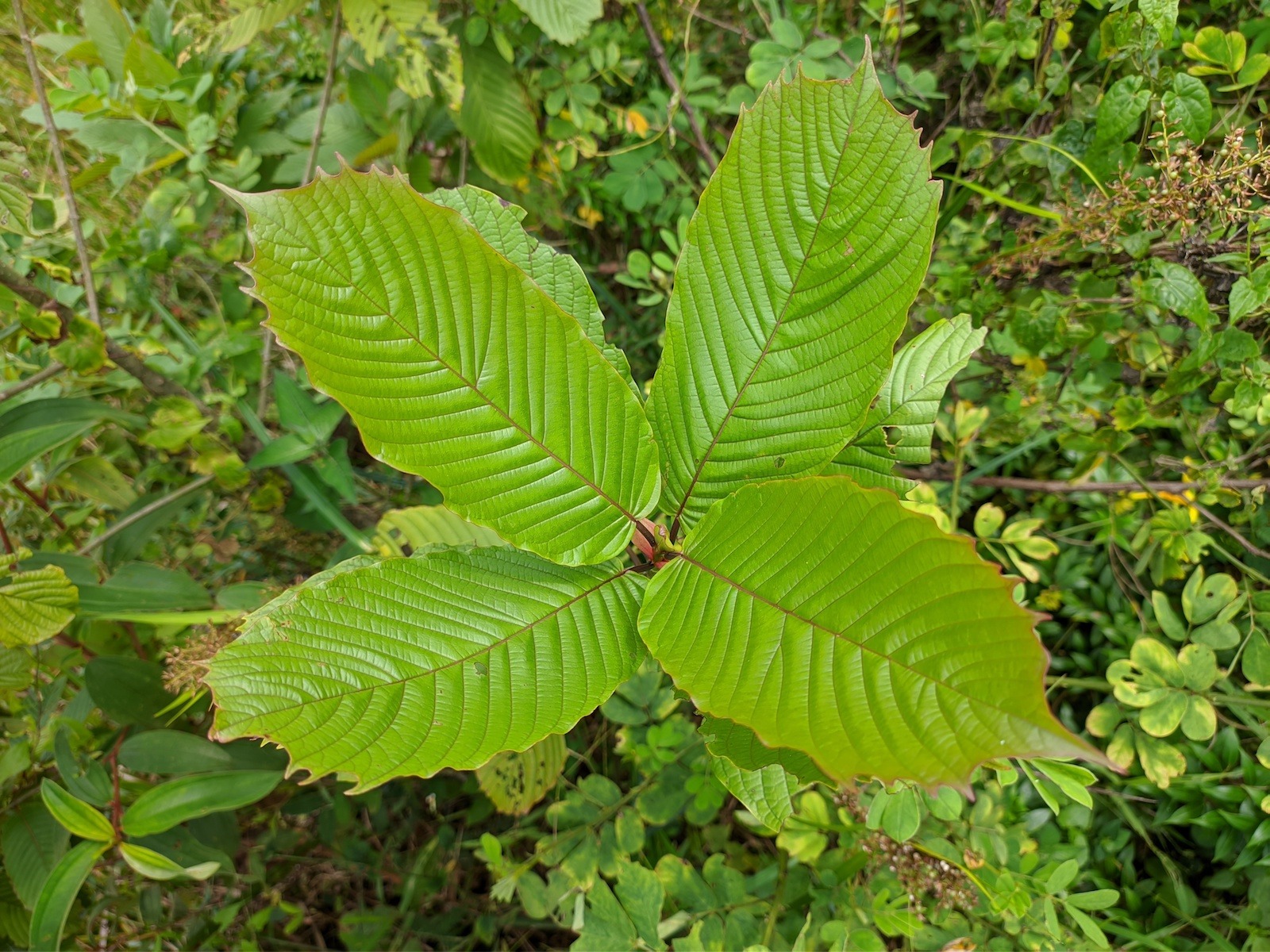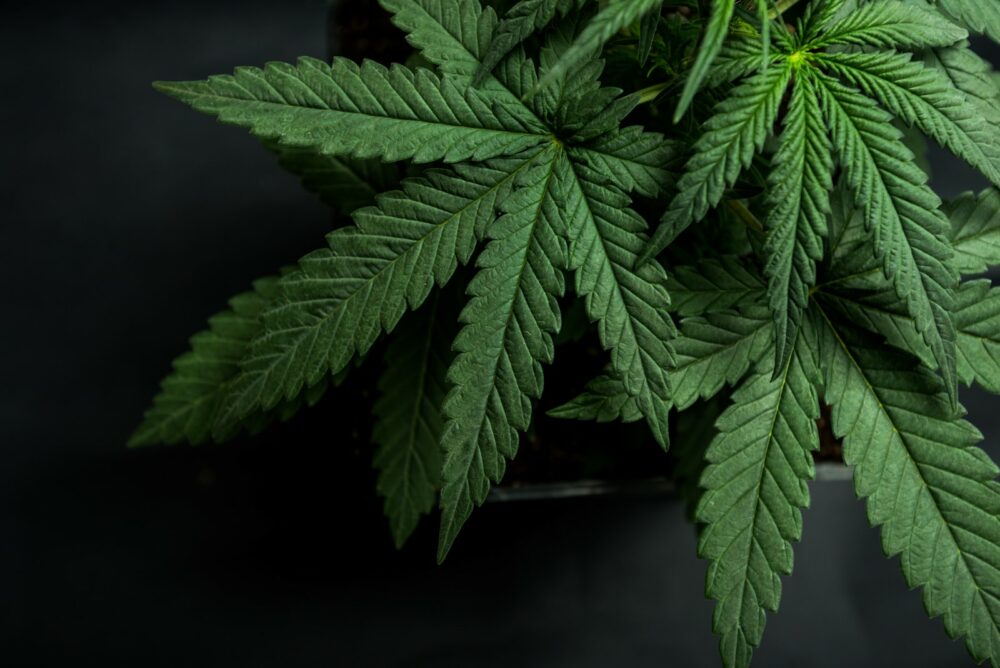Table of Contents
It is known by many names, including Ithang, Mambog, Mitragynine, thang, Biak-Biak, Maeng Da, Thom, and kratom.
Kratom is a type of tree that grows natively in many parts of the tropical world, particularly in Southeast Asia. Countries like Malaysia, Thailand, and Indonesia are hot spots for kratom. The trees are harvested and processed to create an extract with psychotropic effects. These psychotropic effects can significantly alter the perception, mentality, and physical state of those who consume it.
It is the leaves of the kratom tree that are highly sought after for processing. They have a long history of use as a traditional medicine in the cultures. In addition to being used medicinally, it is also processed for recreational use. It can be taken in several different ways. When prepared for consumption, the leaves are often dried and then brewed into a tea or chewed to release their psychotropic prize.
There are many different types of kratom, with many formulations being sold medicinally to help relieve specific symptoms and others being used recreationally to induce specific effects or feelings in the user. Some people will use kratom to help relieve or reduce coughing, depression, high blood pressure, anxiety, and even to help minimize or eliminate the symptoms that occur during withdrawal from opioids like heroin. However, kratom is extremely addictive and can cause an opiate user to stay in the perpetual state of addiction, thus creating more issues for the user in the long run.
The Dangerous Side Effects of Mixing Alcohol & Kratom
Since kratom can fill the role of two potentially addictive substances, depending on how it’s used, there is a significant risk of potentially dangerous effects, including sweating, seizures, nausea, hallucinations, elevated urine production, constipation, dry mouth, itching, and hallucinations.
Alcohol abuse can frequently result from the strong chemical dependence it creates on the drinker. In addition, it can cause several side effects from neurotransmitter burnout and CNS damage to brain damage, memory loss, and seizures.
Mixing kratom and alcohol can be incredibly dangerous, no matter how the kratom is dosed. Since alcohol causes central nervous system depression, and kratom can act as a stimulant or a sedative, it can cause significant interactions. Since alcohol can interfere with the user’s judgment and ability to feel the effects of the other drugs they have consumed, the risk of an accidental overdose will be incredibly common and easy to achieve.
Some will purposefully combine drugs like this to feel effects they haven’t experienced before or in an attempt to heighten the effects of either one substance or the other. In many cases, this can cause the consumption of dangerous excess.
Abuse Potential for Kratom & Alcohol
Kratom has a reputation for causing some pleasant effects in its users. This activity is facilitated by its effects, which are incredibly similar to the effects people feel when they consume stimulants and opioids. This is because the chemical compounds contained in the kratom extract interact with specific opioid receptors in the brain.
These compounds are the psychoactive 7-alpha-hydroxy-mitragynine and mitragynine. When these two compounds attach to receptors in the brain, a rush of pleasurable effects washes over the user. These effects can include significant pain reduction, euphoria, general feelings of pleasure or enjoyment, and sedation.
The occurrence of effects that mimic opioids is often experienced when the user takes a large dose of kratom extract. This is thought to occur due to the mitragynine being overpowered by the effects of the 7-alpha-hydroxy-mitragynine since smaller doses seem to more frequently trigger receptors associated with stimulant use. Smaller doses are reported to produce effects such as increased alertness, more relaxed social interaction, and elevated energy levels instead of the more relaxed sedation that larger doses seem to cause.
Whether desirable to others, these effects are incredibly potent, and the receptors they act on can alter brain chemistry. This can lead to a relatively strong chemical dependence in those who consume it. This dependence will cause those users to go through a detox and withdrawal phase once cessation begins.
There will be some relatively serious withdrawal symptoms after the user has taken their final dose of kratom, allowing their body to begin functioning independently. In addition, the effects of kratom on the user’s brain chemistry mean that suddenly stopping the use of kratom can cause significant stress on the neurotransmitters.
These withdrawal symptoms will vary in severity from person to person depending on many factors, like age, sex, medical history, current health, and more. These symptoms can include general achiness, irregular emotional state resulting in anger, irritability, and even aggression. Other common withdrawal symptoms include disruption of the sleep cycle, often resulting in insomnia, runny nose, and jerky movements resembling ataxia.
Alcohol also has significant potential for abuse, largely due to the high social acceptance surrounding it and the tendency for people to ignore problems with alcohol when they first begin. The potential for abuse is also magnified by the availability of alcohol and the ease by which nearly anyone can get it.
Alcohol detox can be complicated and taxing, featuring many potentially serious withdrawal effects such as nausea, vomiting, constant sweating, headaches, and more. The increasingly severe symptoms include hallucination and even seizures, with long-term and heavy users also being prone to delirium tremens or the DTs.
How To Get The Help You Need For An Addiction to Kratom & Alcohol
If you or someone you know and love may be addicted to kratom and alcohol, help should be sought and done quickly and by working with experienced treatment professionals. Not only can those professionals ensure that the potentially dangerous detox process can occur safely and with medical supervision, but they can also create flexible treatment plans tailored to each individual.
Reach out today if you or a loved one is struggling with an addiction to kratom or alcohol. Now is the time to get the help you need and deserve.
Sources:
Infinite Recovery has strict sourcing guidelines and relies on peer-reviewed studies, academic research institutions, and medical associations for our references. We avoid using tertiary references as our sources. You can learn more about how we source our references by reading our editorial guidelines and medical review policy.
- Smith M. What Is Kratom? WebMD. Published March 20, 2021. Accessed June 28, 2022. https://www.webmd.com/mental-health/addiction/kratom-facts
















